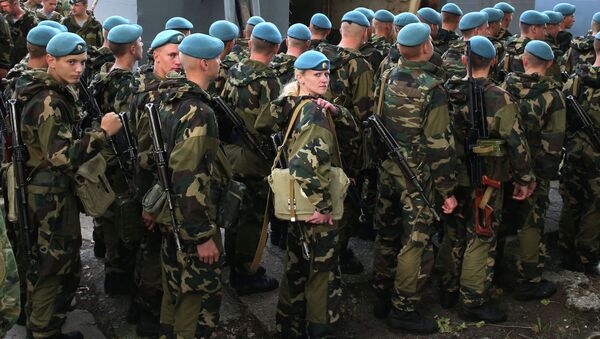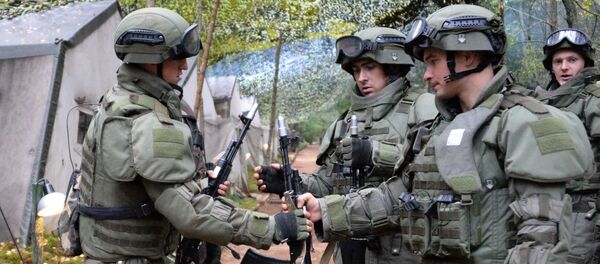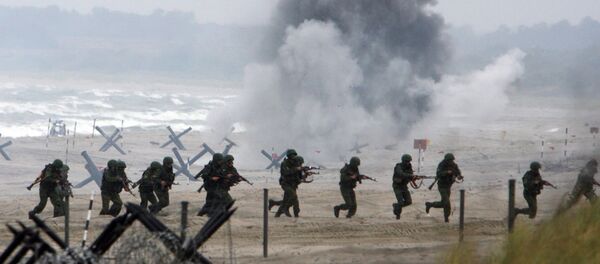MINSK (Sputnik) — The first phase of Russia-Belarus joint military exercise Zapad-2017 ("West-2017") will be focused on the simulated fight against sabotage-reconnaissance groups of the simulated adversary as well as against illegal armed groups, the Belarusian Defense Ministry said Friday.
"In the first phase of the exercise…, the priority is given to fight against sabotage and reconnaissance groups of the simulated enemy and against illegal armed groups," ministry's spokesman Vladimir Makarov told reporters.
According to Makarov, at the Borisovsky training ground the maneuvers in the framework of setting up defense against saboteurs will be held. At the Osipovichi ground, the forces will imitate search, blockade and destruction of sabotage and reconnaissance groups, while at Lepelsky site, military action to repel an attack of saboteurs on the checkpoint will be performed.
The Zapad-2017 has prompted Baltic states' and Poland's claims of the drills allegedly being a "threat" to their security. In their turn, senior Russian and Belarusian officials reiterated that the drills do not pose any threat to other states and are exclusively defensive in nature.
A spokesman of the information department for ideology of the Belarusian Defense Ministry Vladimir Makarov said that the Russian-Belarusian joint military drills Zapad-2017 were not aimed at practicing military operations against Western states, and simulated targets do not in any way represent NATO states.
"Belarus does not consider any state as an enemy… We do not consider any western state, including those from [NATO] alliance, as enemies, and are doing the utmost to have no enemies in the future," Makarov told reporters, answering a corresponding question.
Amid the mounting concerns of the Western states with regard to the joint drills NATO Supreme Allied Commander Europe Curtis Scaparrotti had a phone conversation with Russia’s Chief of Staff Valery Gerasimov.
A NATO Supreme Headquarters Allied Powers Europe (SHAPE) official told Sputnik that the communication channel was used to "foster predictability and transparency."
"They spoke about the need for transparency in exercises. The conversation demonstrates a clear mutual interest to maintain the military lines of communication, in line with NATO's policy of transparency and ongoing dialogue at the political level of Russian leadership," the official said.
The week-long Russian-Belarusian military exercises kicked off on Thursday at several sites from Russia’s northwest to Belarus. They bring together 12,700 service personnel – 7,200 Belarusian and 5,500 Russian troops – as well as 70 aircraft, 250 tanks and 10 ships.



